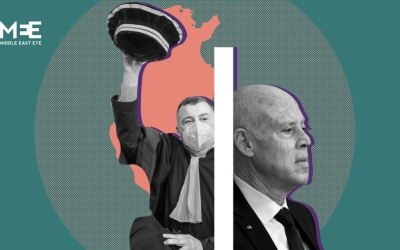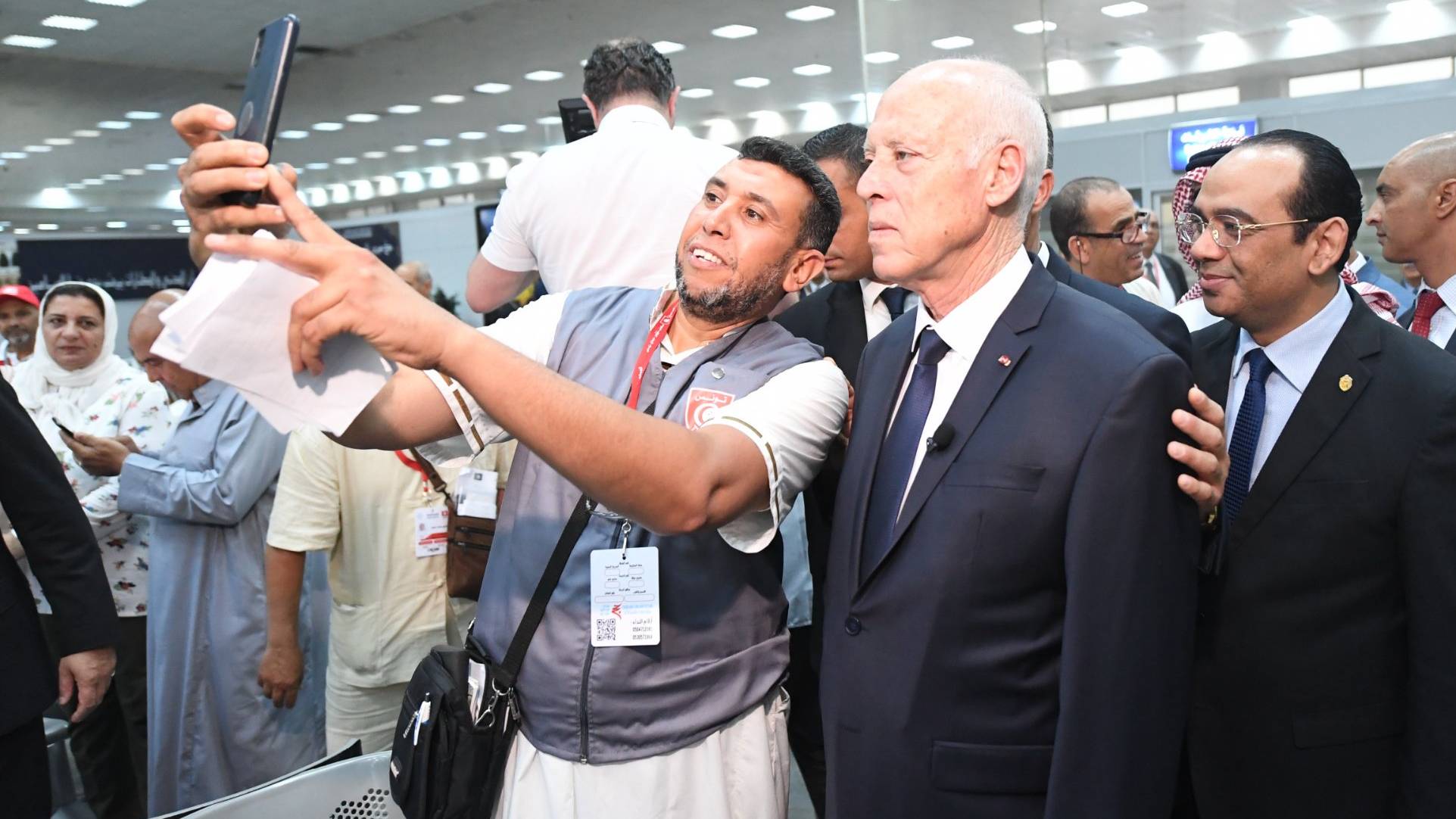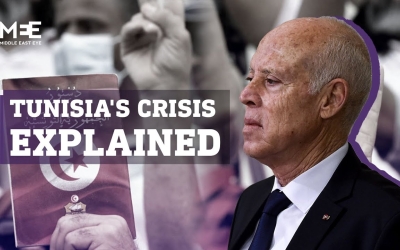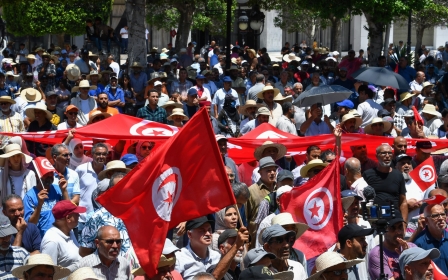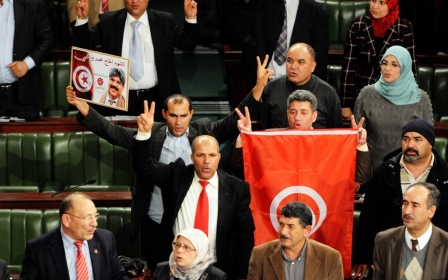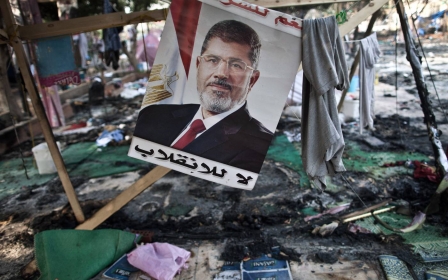Tunisia's new constitution: What's new and who's behind it?
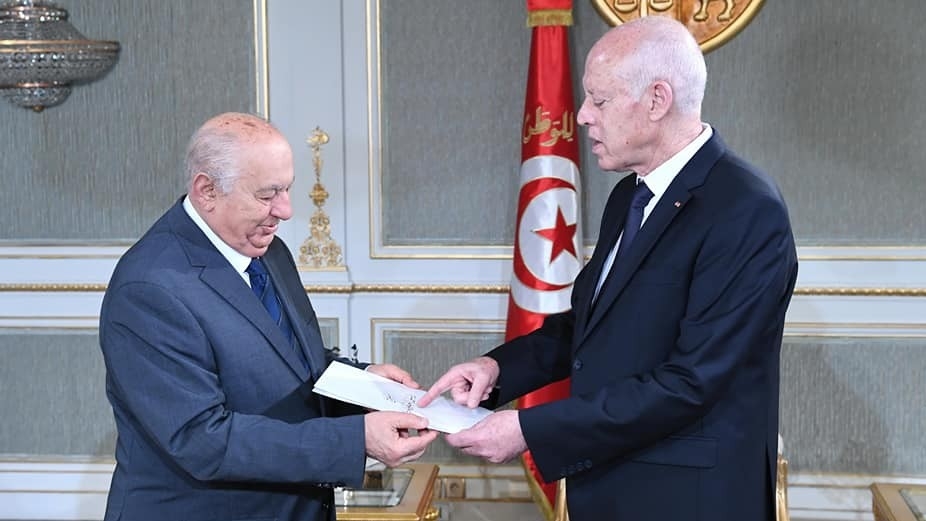
Tunisia's President Kais Saied is planning to put a new constitution to a referendum in July, overhauling the country's legal, political and economic structures to build a "new republic".
Saied, who was elected president after running as an independent in 2019, began a series of power-grab measures in the summer of 2021 that concentrated executive, legislative and judicial powers in his hands. His opponents have termed Saied's power consolidation a coup.
His latest move was pushing for a new constitution that would replace the 2014 constitution - a cornerstone of the post-revolution change towards democracy in Tunisia.
The law professor-turned-politician received a draft on Monday of the new constitution handed to him by Sadeq Belaid, a veteran legal expert in charge of the committee drafting the new charter.
New MEE newsletter: Jerusalem Dispatch
Sign up to get the latest insights and analysis on Israel-Palestine, alongside Turkey Unpacked and other MEE newsletters
A referendum vote on the new document is now slated for 25 July, granting Saied more powers in shaping Tunisia's political system. It will also break away from and amend some articles and chapters in the 2014 constitution, most significantly omitting Islam as the religion of the state.
However, political parties had avoided engaging in consultation to draft the new constitution, namely the Ennahda Movement - the leading force in the now-dissolved parliament, the Dignity Coalition and Heart of Tunisia parties.
Opposition parties said they would boycott the referendum as thousands of Tunisians took to the street over the weekend, protesting Saied's move.
The constitution draft comes when judges have extended their national strike for a third week in protest at Saied's dismissal of 57 judges, accusing them of corruption and "protecting terrorists".
Last week, a 24-hour strike, organised by the powerful Tunisian General Labour Union (UGTT), which demanded wage rises for its workers, brought the country's international and domestic flights to a standstill, and disrupted land and sea transportation, as opposition against Saied takes new shape.
Middle East Eye looks at who's behind the new constitution and what new articles are proposed.
What's new in Saied's constitution?
Saied has until the end of June to approve the draft and put the new constitution into a referendum within 30 days. If passed, this will be the third Tunisian constitution since 1959.
The constitution passed in 2014 was a hard-won document Tunisians got through the 2010 revolution, which ousted former president Zine El Abidine Ben Ali. It was also a political compromise between secular parties and the Islamist movement of Ennahda.
Both the 1959 and 2014 constitutions state that Islam is the "religion of the state". However, the new draft will remove a reference to Islam.
"The next constitution of Tunisia won't mention a state with Islam as its religion, but of belonging to an umma (community) which has Islam as its religion," Saied told journalists on Tuesday.
"The umma and the state are two different things," he added, while meeting with Tunisian pilgrims at Tunis airport on their way to Mecca.
Belaid, the head of the drafting committee, said in June that the new constitution would not mention Islam as the religion of the state to "prevent deploying religion for political extremism," he said.
Ennahda has condemned Belaid's remarks, saying that Saied is staging a coup on the democratic values of the 2010 revolution, and an assault on the mixed-party parliamentary system.
It also warned of amending or omitting the constitution's first article, which states that: "Tunisia is a free, independent, sovereign state; its religion is Islam, its language Arabic."
The full version of the new constitution has not yet been made public. Saied had vowed to rebuild Tunisia's political system and revitalise the economy.
He said the draft "is not final, and some sections may be revised or given further thought".
"Whether the system is presidential or parliamentary is not the question.
"What counts is that the people have sovereignty. There's the legislative function, the executive function and the judicial function, and separation between them," he said on Tuesday.
Another major difference from the 2014 constitution will be the focus on economic prosperity, Belaid said earlier this week.
Who's in and who's out?
The decision to set up a new constitution for Tunisia began in May when Saied had put Belaid in charge of the drafting committee.
For this mission, Saied also set up the National Consultative Commission for the New Republic, consisting of three social, legal and economic committees and a national dialogue committee.
The national commission had included the UGTT, the most powerful union in the country. However, its leaders said a referendum vote on the new constitution "does not abide" them.
The commission also included the deans of law schools in the country, heads of commercial unions, besides some human rights groups.
Yet, the commission and the drafting committee have not included any representatives from Tunisia's leading political parties, mainly Ennahda and the Free Constitutional parties.
The leaders of the UGTT, which involved around 700,000 people in its recent strike, said they will not participate in the constitution talks.
Other parties excluded from the talks were the centrist-liberal Republican Party, the socialist Democratic Current, the Democratic Forum for Labour and Liberties (Ettakatol), and the communist Workers' party.
They have called for a campaign to drop the referendum and described it as a "sham", aiming to give "false legitimacy" to Saied against the 2014 constitution.
Mohamed Ben Salem, a former Tunisian minister of agriculture, described the new draft as "the constitution of the dark rooms".
"What is being written now would not be a constitution for the Tunisian Republic, but would be the constitution of the Republic of Kais Saied, so the republic could be called the Kaisist, Saiedist or the Belaidist Saiedist republic," Salem said.
This article is available in French on Middle East Eye French edition.
Middle East Eye delivers independent and unrivalled coverage and analysis of the Middle East, North Africa and beyond. To learn more about republishing this content and the associated fees, please fill out this form. More about MEE can be found here.


